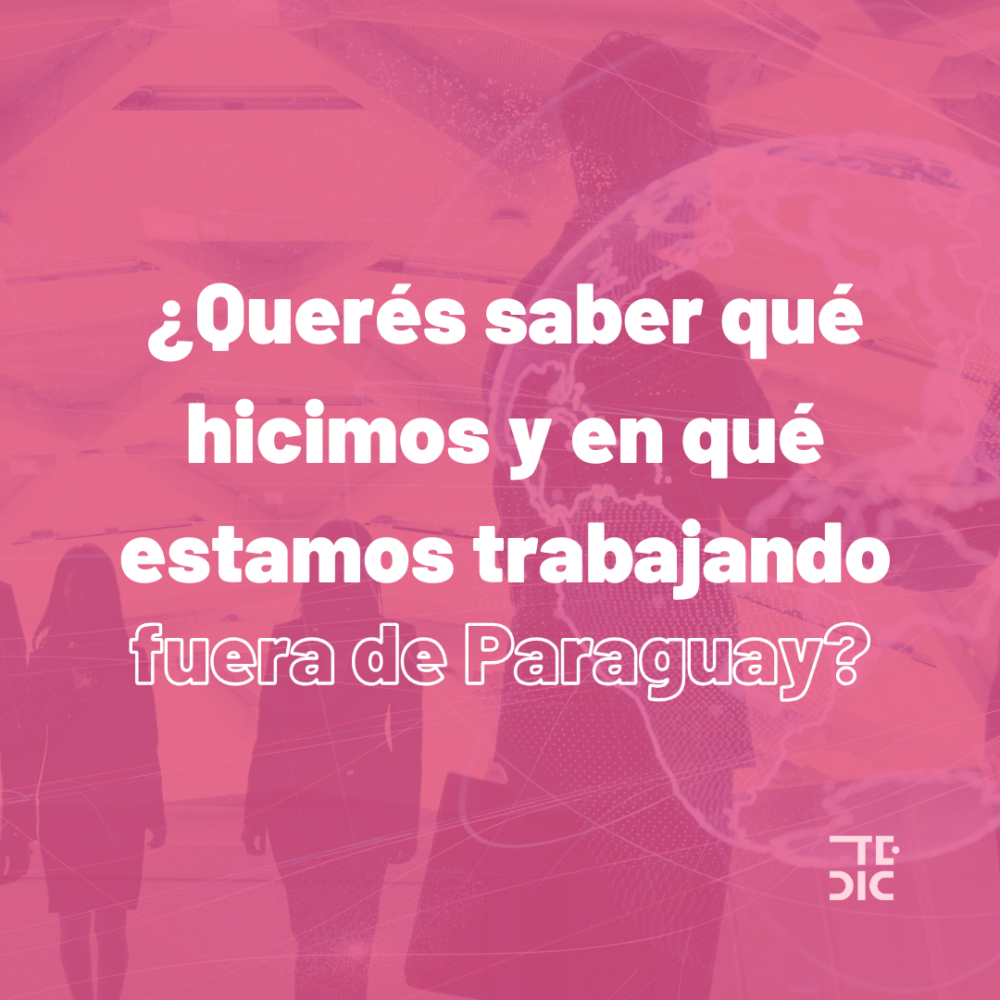
From January to April 2025, TEDIC has continued to strengthen its national and international advocacy efforts to promote a free, open internet rooted in human rights. In this blog, we share the main international actions we carried out during this period, participating in multistakeholder forums, regional and global coalitions, high-impact events, feminist and civil society spaces to amplify our demands and proposals.
Access to Knowledge and Environmental Justice in the Face of AI
Since 2020, TEDIC has been part of the Access to Knowledge (A2K) Coalition, a global network advocating for copyright reforms to ensure equitable access to information. In January 2025, we signed an open letter to the WIPO Standing Committee on Copyright and Related Rights (SCCR), reaffirming our commitment to an inclusive and contextualized agenda.
We also joined the global statement “Within Bounds: Limiting AI’s Environmental Impact”, along with over 100 organizations. The statement outlines five urgent demands to curb AI’s environmental toll: eliminate fossil fuels, reduce the computational footprint, demand transparency, ensure responsible supply chains, and promote public participation in AI decision-making.
RightsCon 2025: Networks, Panels, and Strategic Dialogues
This year’s RightsCon took place in Taiwan, where TEDIC had a strong and diverse presence. We coordinated, collaborated, and engaged in over 10 spaces including panels, closed meetings, roundtables, multilateral sessions, and networking events.
Panels organized by TEDIC:
- Perpetrators of Online Gender-Based Violence: As part of our partnership with Women Rights Online (WRO), we organized a packed session presenting our research roadmap. The audience’s engagement reaffirmed the urgency of scaling this work and ensuring its sustainability, especially as Digital Action takes over the project’s coordination.
- Online Gender-Based Violence against Women in Politics, Queer People, and BIPOC: TEDIC shared key findings from Paraguay and proposals to address this systemic violence. The session sparked rich dialogue with voices from Brazil, India, and the U.S.
Closed meetings and high-level discussions:
- We joined the Executive Directors’ meeting, addressing donor concentration, the need for new digital rights champions, and the sustainability of civil society.
- Pamela Peralta, our Gender and Technology Projects Coordinator, attended the Youth Leadership Summit, where she presented the Paraguayan context, our research on digital gender-based violence, and the challenges posed by the Anti-NGO Bill.
- At the Regional Latam Meetup, we exposed democratic setbacks and the persecution of TEDIC, sparking discussions on building alliances beyond the traditional digital rights ecosystem.

Other key engagements:
- Meeting on migration and technology with Bosch-Stiftung, where we shared TEDIC’s work on state surveillance and cybersecurity strategies.
- Closed session with GNI and the Trust and Safety Foundation, discussing how platforms like Meta and TikTok can improve collaboration with Global South organizations. We stressed the urgency of faster responses to human rights defenders.
- Active participation in sessions on deepfakes, feminist tactics in elections, autonomous weapons, and digital gender-based violence.
RightsCon was a unique opportunity to strengthen alliances, elevate our priority issues, and build with like-minded organizations.
Human Rights-Centered AI: AI Action Summit in Paris
In February, TEDIC participated in the AI Action Summit, the most prominent Western event on artificial intelligence, held in Paris. The summit brought together activists, tech experts, government officials, and companies to discuss AI’s future through a human rights lens.
Maricarmen Sequera, our Executive Director, offered a critical perspective on digital infrastructure development and AI risks for the Global South. We attended sessions on algorithmic transparency, ethical AI governance, environmental impacts of model training, and Digital Public Infrastructure (DPI).
We also shared lessons from campaigns like Stop Killer Robots, expanded our international presence, and strengthened strategic alliances—reaffirming TEDIC’s commitment to a fair, inclusive, and transparent AI.
Participation in the 69th Commission on the Status of Women (CSW69)
In March 2025, we took part in CSW69 as members of the UNFPA advisory group for the Third Global Symposium on Technology-Facilitated Gender-Based Violence (TFGBV). We contributed to the symposium’s agenda and shared research and insights from Paraguay.

We also participated in over 10 side events hosted by the NGO Committee on the Status of Women in New York, addressing themes such as:
- Collective care and sustainability of feminist activism
- Gender equality in platform economies
- Women’s leadership in the digital age
- Education as a tool for equality
- Feminist networks against gender-based violence
- Labor rights and social justice for women
In addition, we responded to the CIVICUS CSW69 survey, contributing to global advocacy efforts on feminist civil society’s role in digital spaces.
Journalism and Technology: Global South Perspectives
From March 20–22, we participated in “Big Tech and Journalism: Perspectives from the Global South” in São Paulo, organized by Ajor and Momentum with support from IFPIM and Luminate. This was the first of a series of events fostering tricontinental dialogue on journalism and technology, with upcoming editions in Indonesia and South Africa, culminating in the Global Investigative Journalism Conference (GIJC25) in Kuala Lumpur.
Maricarmen Sequera joined both open and closed sessions discussing the impact of digital platforms on journalism, public policy’s role, and innovation opportunities to reduce inequality. The event was key to promoting the Global South’s perspective and strengthening networks with media, technologists, and civil society actors.
Digital Democracy and Governance in Latin America
From March 26–28, TEDIC joined Forum 2000 in San José, Costa Rica—an international event bringing together experts to discuss the future of democracy in the region and the challenges posed by technology in political contexts.
Organized by institutions committed to human rights, the event tackled social media’s impact, disinformation, and digital manipulation in democratic processes. Our participation focused on sharing the Paraguayan case, exploring global trends like political polarization, and proposing digital governance solutions from a critical and grounded perspective.
Contributions to Reports, Statements, and Multistakeholder Processes
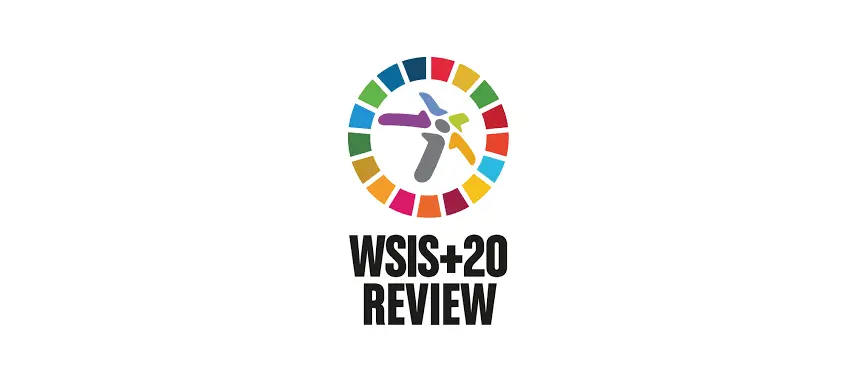
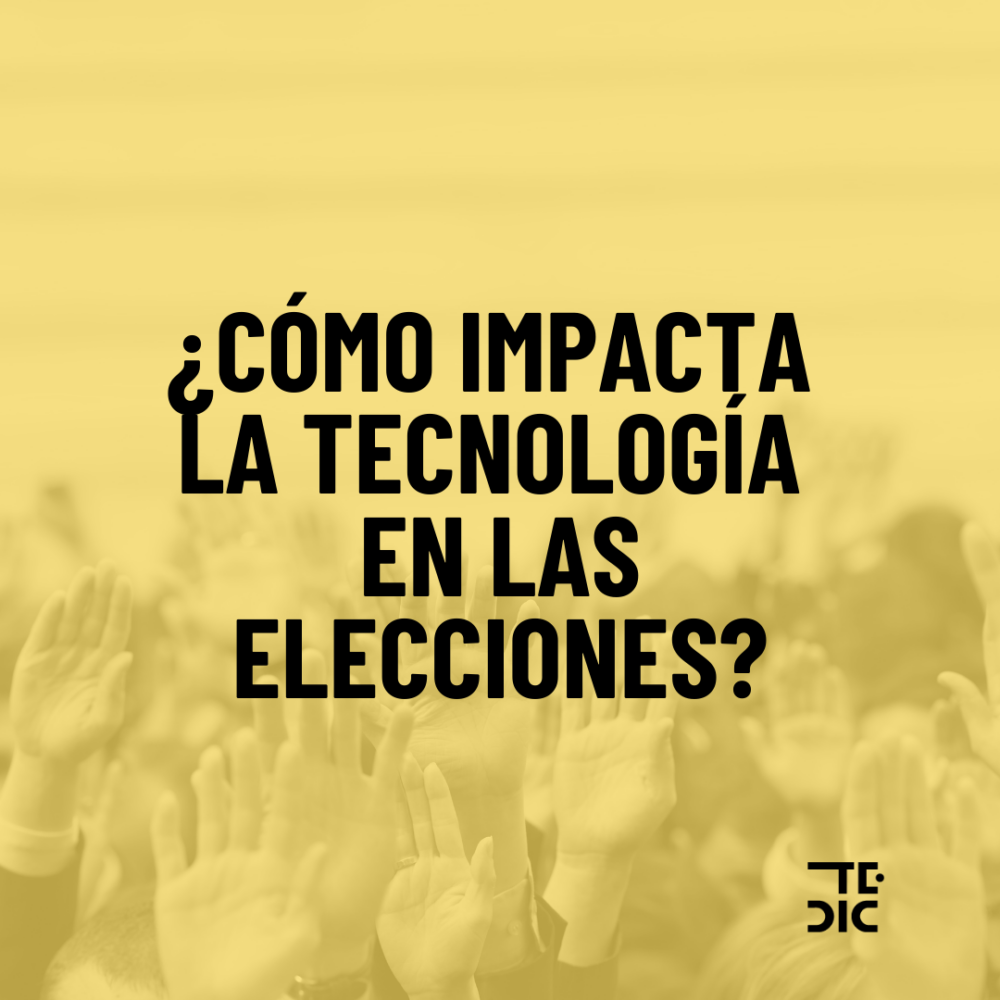
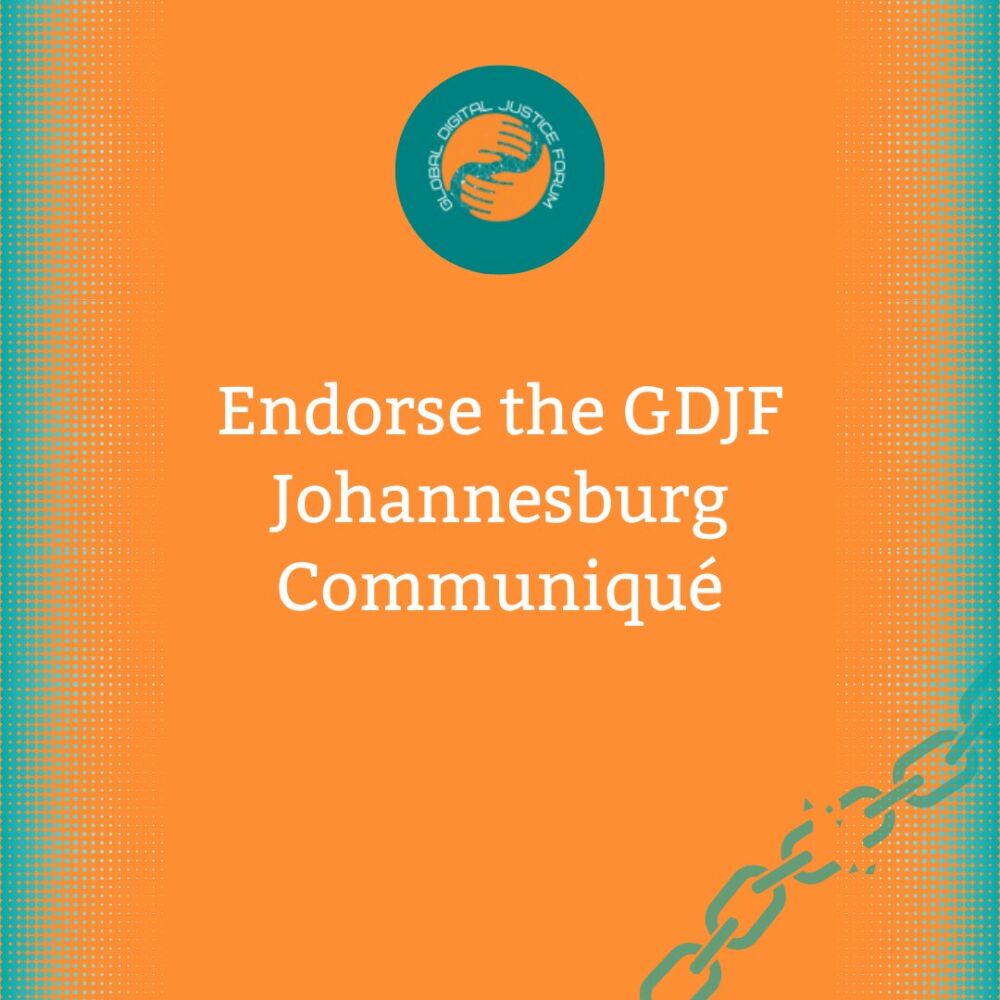
During these months, we submitted written inputs to various international processes:
- Signed a global statement for digital justice as part of the Global Digital Justice Forum.
- Joined the international condemnation of Myanmar’s military regime for internet shutdowns following the earthquake, calling for immediate restoration of communications.
- Contributed to the UN Special Rapporteur on Freedom of Expression report on digital freedom of expression and elections.
- Provided input to the UN Human Rights Council report on TFGBV (Resolution HRC 56/19).
- Submitted feedback to the OECD Council’s draft Recommendation on information integrity.
- Contributed to the WSIS+20 review with a civil society perspective on digital justice.
- Submitted reports to the Inter-American Commission on Human Rights (IACHR) on AI and women’s rights during the 192nd session.
- Submitted a report to the IACHR on women’s access to justice in cases of violence and discrimination.
Member of the Global Future Council on Information Integrity – World Economic Forum
In a context marked by the rapid rise of disinformation, AI impact, and tech-facilitated gender-based violence, ensuring information integrity and building a trustworthy digital ecosystem is a global and urgent task.
In recognition of her work and leadership in digital rights, our Executive Director, Maricarmen Sequera, was officially invited by the World Economic Forum to join the Global Future Council on Information Integrity for a one-year term.
This council brings together global leaders committed to a fairer and safer digital environment. Maricarmen now works alongside figures like Maria Ressa (2021 Nobel Peace Prize Laureate) and Amanda Sorey, Global Director of Trust & Safety at Google.

We Keep Opening Paths
These first months of the year solidify a clear line of action: driving a digital rights agenda rooted in the Global South, with a focus on gender, privacy, freedom of expression, tech justice, and civic participation.
Thank you to all who support our work—strategic allies, communities, donors, and partner organizations. Together, we continue building a more just internet.
Follow us on social media to stay tuned for our upcoming actions.


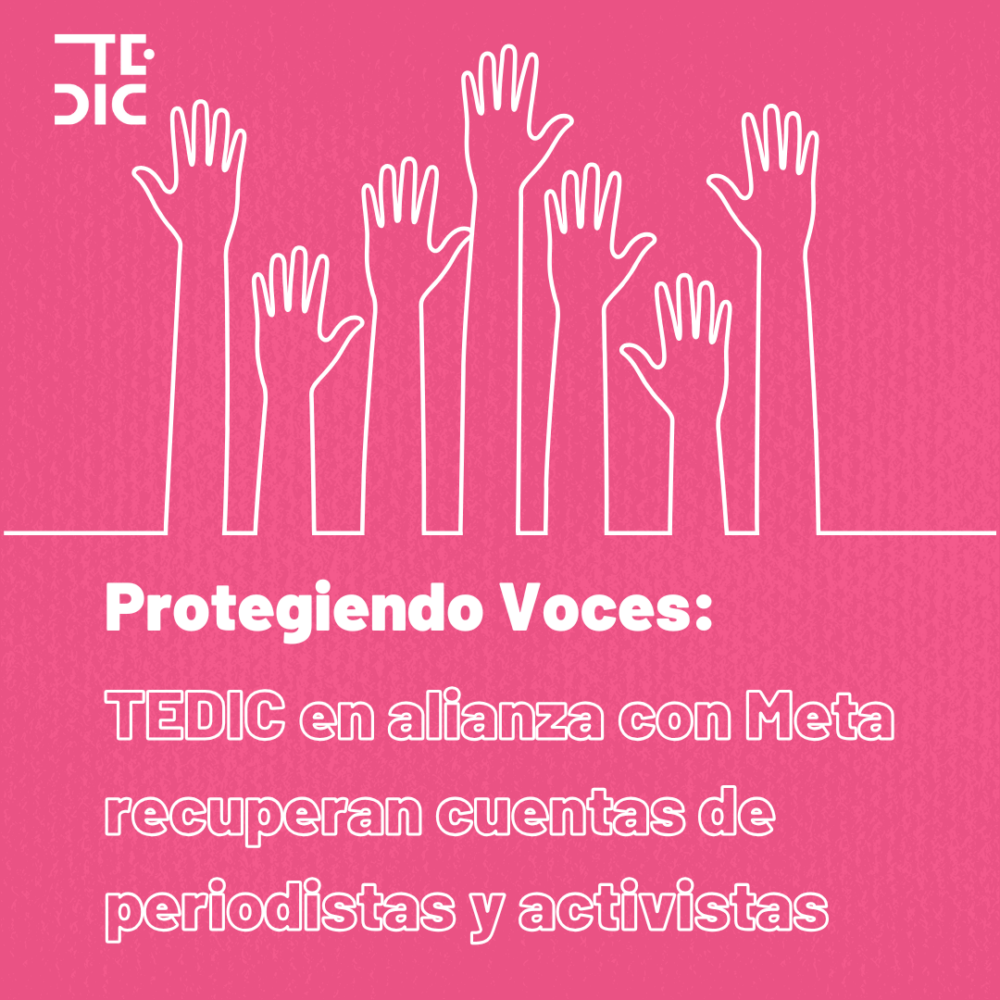 Defending those who defend us
Defending those who defend us